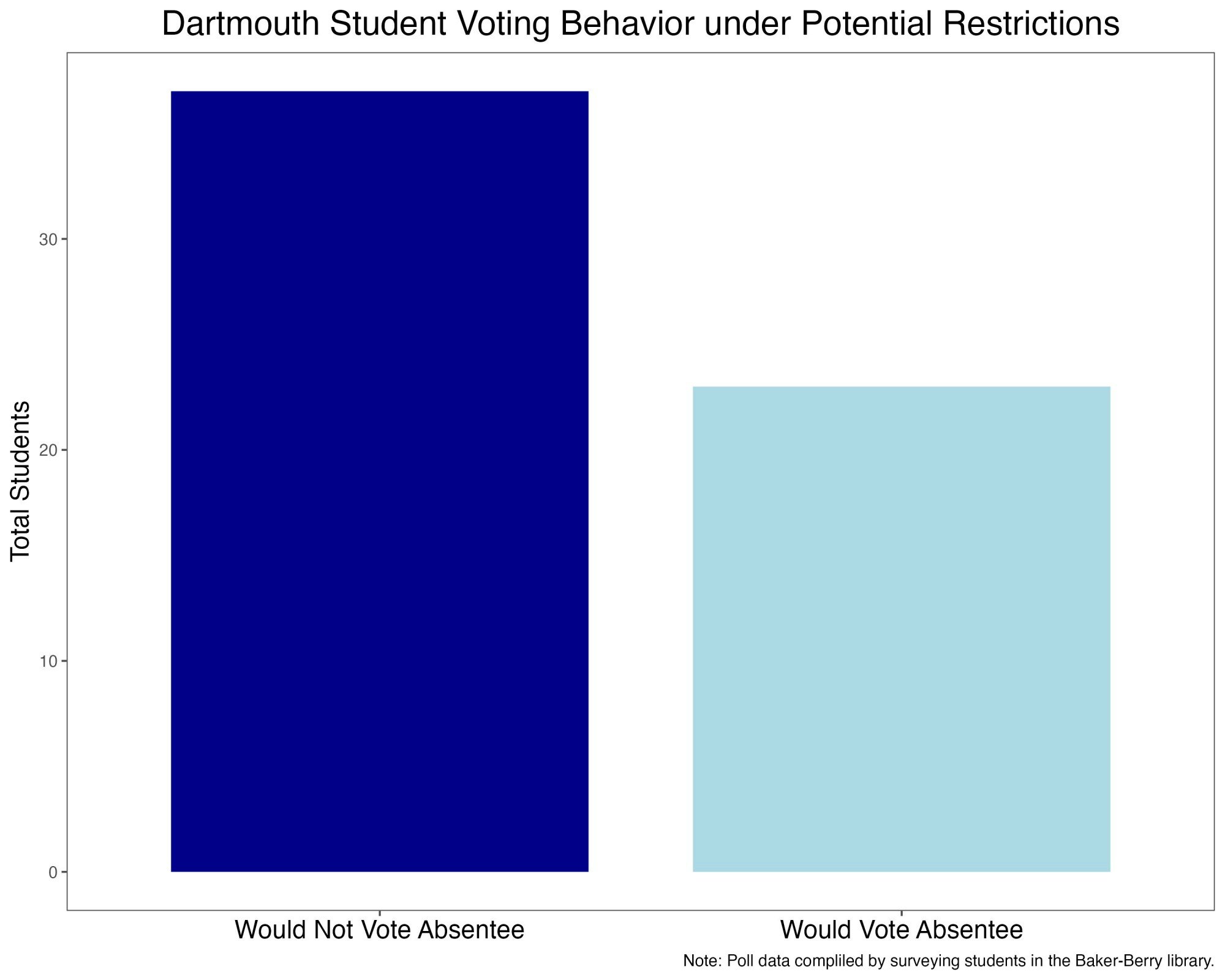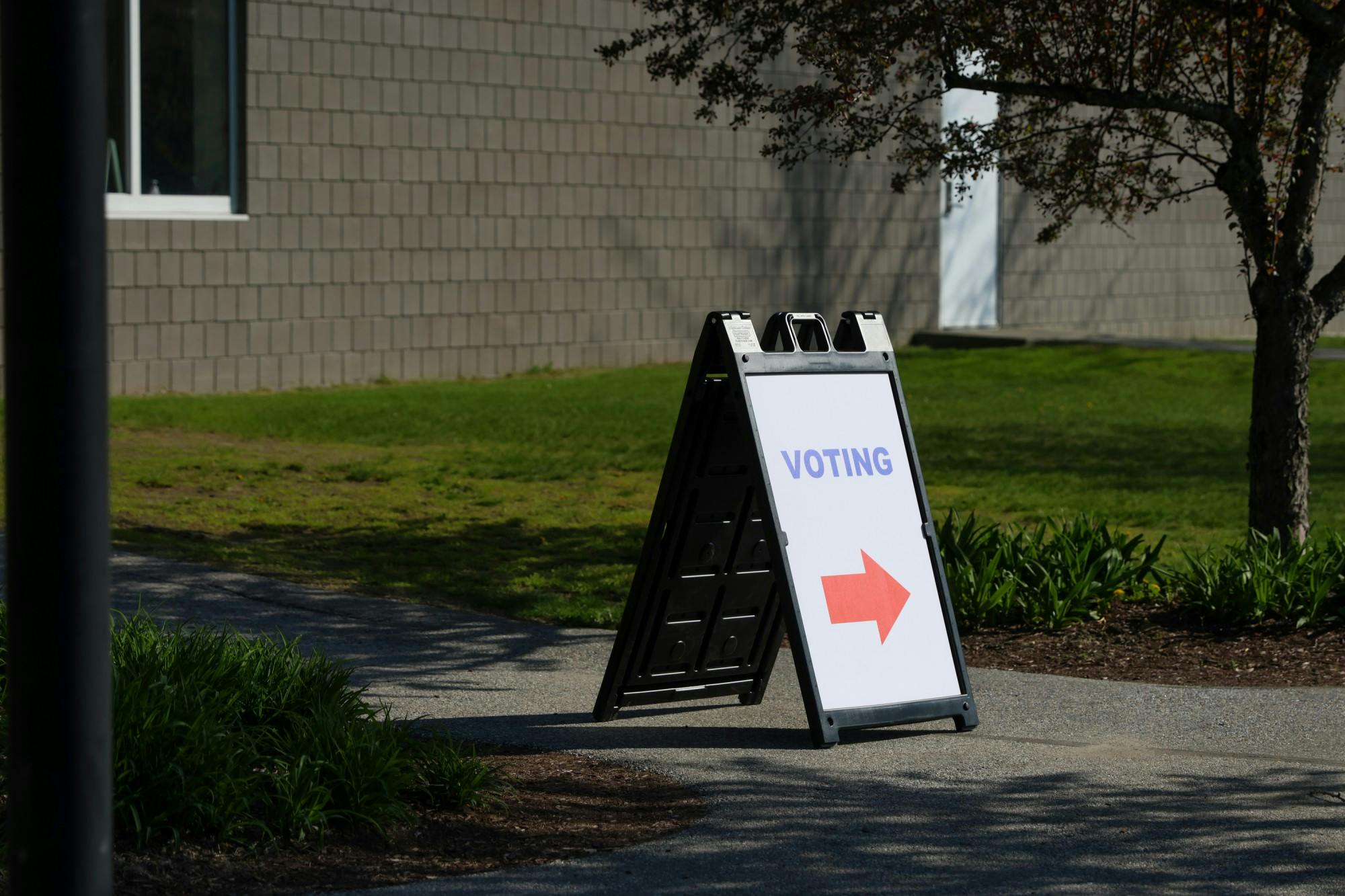Every other November, New Hampshire voters wait with bated breath for the state election results of their beloved Granite State. Over the last few election cycles, one question has bubbled to the surface: Should out-of-state students have the right to vote in New Hampshire elections? As of now, the law allows out-of-state students to vote in New Hampshire state elections by registering to vote through demonstration of identity, age, and citizenship, as well as documentation that shows you live in campus housing. Contention, however, runs deeper than party lines.
Some New Hampshirites decry this facet of state law, emphasizing that out-of-state students are merely temporary members of the New Hampshire community, thus not deserving of a say.
This concern resonates with Ferielle Fenichell ’26, who highlighted how students may not feel the impacts of their own vote.
“Voting on matters can have a long term impact on the state, and a lot of students won’t feel the repercussions of their vote,”Fenichell said. “If you are somebody who holds the right to vote near and dear to your heart, you are definitely going to feel more passionate about it in your home state against a state you’re not really tied to [besides] education.”
As an out-of-state student, Emma Troost ’24 said the idea of voting in New Hampshire and impacting New Hampshire feels “uncomfortable.” As a result, she said she votes by absentee ballot in her home state of Michigan.
“I wouldn’t feel right making a decision that could impact someone who is a lifelong New Hampshire resident,” Troost said.
However, in addition to concerns about the impacts of student votes, college student voting rights have also been limited due to another area of scrutinization: Voter fraud. Recently, the Republican Party focus has shifted heavily towards tightening voting laws under the claim of widespread voter fraud. Specifically, advocates link the allowance of student IDs as permissible forms of ID with an increase in fraudulent voters. In New Hampshire, G.O.P lawmakers proposed a bill this year that would have hindered voting access for out-of-state college students, but this bill did not pass committee.
State representative and government professor Russel Muirhead, D-Grafton, who resides on the House’s Election Law Committee, firmly disagreed with this assessment. Muirhead said fraud is not the problem with the American voting system. Rather, he emphasized how the U.S. needs to focus on incentivizing citizens to show up at the polls and ease barriers residents face to voting. According to Muirhead, many struggle with the time commitment of registering to vote, assembling the right documents and missing out on a day of paid work.
“The idea that American democracy is marred by large scale voter fraud is at best, a fantasy, at worst, a lie,” Muirhead said. “The real challenge, I think, for the health of American democracy, is to make voting more accessible, especially for working people.”
This message is especially poignant when considering college students. Muirhead emphasized the idea that students are voting fraudulently is “preposterous.”
“It's very difficult to motivate students to vote. They have a lot going on in their lives — many are working to support themselves while taking class,” he said. “Figuring out where to vote, how to vote, is its own challenge, so few students are actually voting.”
According to a verbal poll of 43 Dartmouth students on April 27, of those who responded, only 45% voted last November. In addition, out-of-state students were asked if they would vote by absentee ballot in their home state if legislation passed that limited their ability to vote in New Hampshire. Of those who previously voted, roughly 60% agreed that they would make the effort to do so.

In September 2017, New Hampshire legislature passed Senate Bill 3, requiring newly-registering voters to provide proof of residency in the state before casting a ballot. This bill significantly hindered Dartmouth students from voting as New Hampshire citizens. Then, in April 2020, the New Hampshire State Supreme Court struck down this law, deeming it “unconstitutional.” According to Muirhead, the law was “explicitly aiming at disenfranchising Dartmouth and UNH students,” but he emphasized how Dartmouth students helped advocate against the legislation.
“Dartmouth students were absolutely essential to the fight against SB 3,” he said. “I think there are a lot of Republicans that recognize the rights of students to vote in the state, and I do not see this right being confronted, or attacked, in a really powerful way. But the fight goes on.”
Evidently, the fight for student voting rights does not lie between Democrats and Republicans. Instead, the rift runs between inclusivity and disenfranchisement.
Further, Muirhead said he celebrates that the New Hampshire election law committee has successfully fought against infringement upon student voting with bipartisan support since Senate Bill 3 was passed. Many bills, such as House Bill 405 (2021), which sought to prohibit out-of-state students from voting in New Hampshire, or House Bill 460 (2023), which attempted to eliminate the student ID as a permissible form of ID for voter registration, have been defeated in the New Hampshire Election Law Committee.
Although the Election Law Committee plays a powerful role in voting legislation, residents of New Hampshire, including students, can have a voice in these issues according to Fiona Hood ’26, a political director for the Dartmouth Democrats. She emphasized the importance of students joining in on the cause.
“You can always voice your opinions. Call your legislators’ office or write them a letter. I mean, that is a little bit of extra effort,” Hood said. “But in numbers, it really goes a long way, especially when it's from the voices of young people.”




